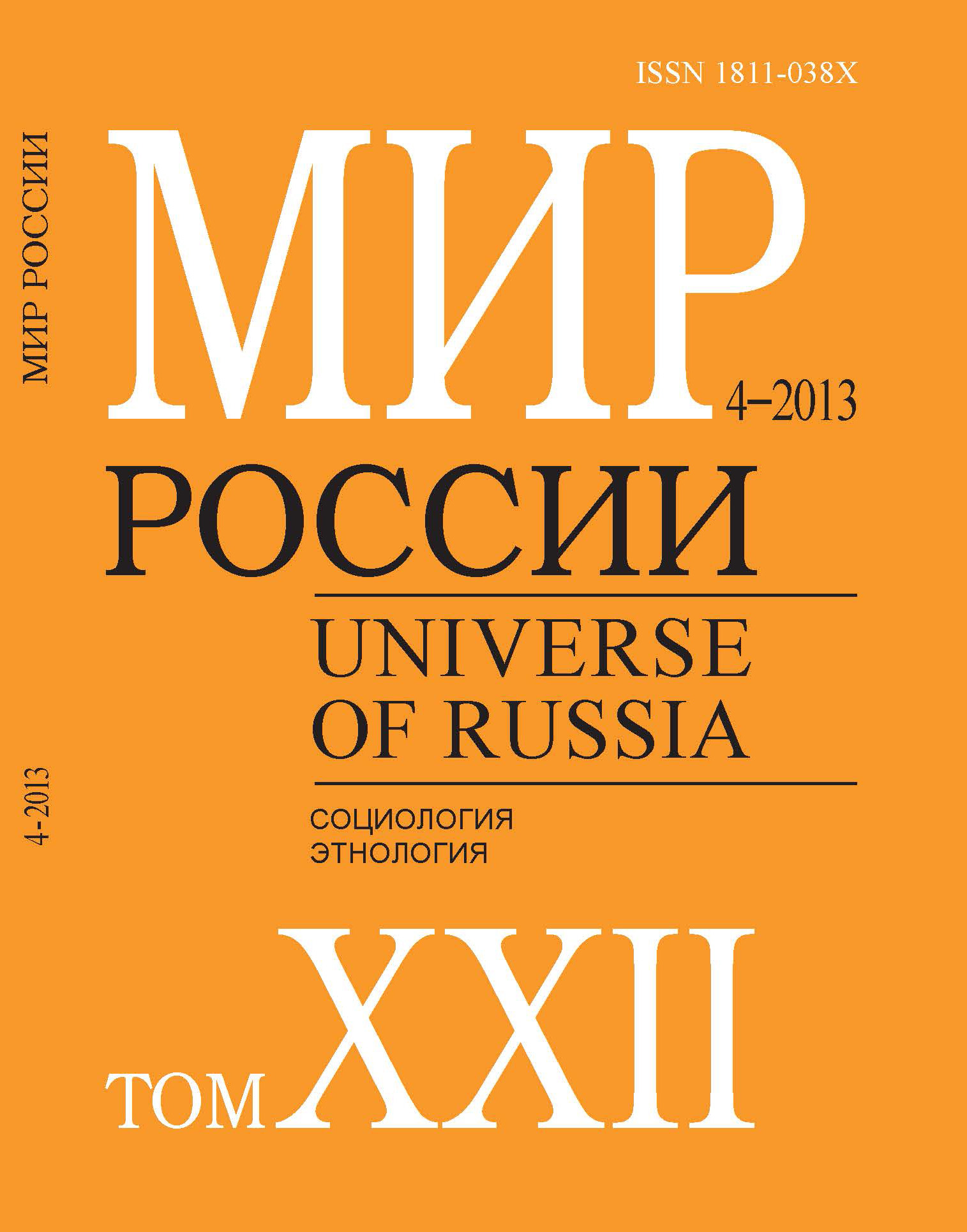Formally and Informally Employed in Russia: Comparing Different Estimates for Subjective Social Status
Abstract
Anna Zudina — Junior Research Fellow, Centre for Labour Market Studies, National Research University “Higher School of Economics”. Address: 40, Myasnitskaya St., Moscow, 101000, Russian Federation. E-mail: azudina@hse.ru
In modern world the sphere of employment is one of the key areas which shape individuals’ self-identification, social relations and integration into society. One of research areas which particularly highlights the importance of occupation and employment is the study of social stratification. Occupation is a factor which determines not only the objective social status of an individual, but also the self-evaluation of his or her own place within society, i.e. subjective social status. And yet such issue as a distinction between formal and informal employment with respect to such evaluation so far has been overlooked by most researchers in the area. Such research appears to be highly promising since the scales of informal employment are increasing worldwide and the study of its impact on the socio-economic position of workers is becoming more and more important.
The consequences of informality for social structure and social inequality have been intensely discussed by economists and sociologists. The heterogeneous nature of activities incorporated into the concept of “informality” sets the stage for ambiguity of its impact on economy and society. A more traditional analytical approach usually deals with comparing income levels. However, it has certain limitations. Firstly, information about the income of the informally employed is frequently misreported, which leads to significant biases in data collection. But the greater problem is how this type of analysis proves incapable of considering possible non-monetary benefits and the disadvantages of informality, which could possibly influence the choice of employment. The present study proposes a new approach that attempts to integrate the concept of subjective social status.
The major part of this paper discusses the results of an empirical study of subjective social status of informal workers in Russia from 2000-2010 based on data from the Russian Longitudinal Monitoring Survey (RLMS-HSE). Particularly, informal employment is analyzed as a factor of subjective social status using various econometric techniques. Ordered probit models are used to compare and contrast different labor market statuses while controlling for other characteristics. The author also integrates all data waves into a single panel database and estimates fixed effects models to solve possible unobserved heterogeneity estimation bias which might have been caused by self-selection into particular occupations and industries (most likely connected with individual preferences and psychological features affecting self-evaluation). Gender groups are analyzed separately to account for the assumption that subjective social status is shaped differently between males and females.
One of the main findings is that informal employment in Russia does not seem to have a significant impact on the system of social inequality in Russia. However, certain pronounced distinctions can still be highlighted: with the self-employed usually being better off than informal wage and salary workers, and irregular workers representing the most deprived category of informal employment (similar in its self-evaluation of social status to economically inactive people).
The results of this analysis might prove useful for further study of labor market situations, employment and subjective social status. Generally, the Russian population is characterized by low levels of subjective social status, regardless of their labor market position or the formality of their employment. Moreover, the situation did not change considerably from the mid 1990s to the beginning of the 2000s, when low levels of subjective social status for the Russian population were also registered. The differences between the categories of informally employed and those engaged in formal employment are mostly insignificant and the size of effects is very small. Furthermore, financial benefits are not associated with formal employment — it is self-employment that makes workers feel a little bit more wealthy. The system of social benefits also does not seem to have a significant impact on subjective well-being of formal workers in the sense that they feel just as well off as informal wage and salary workers.






